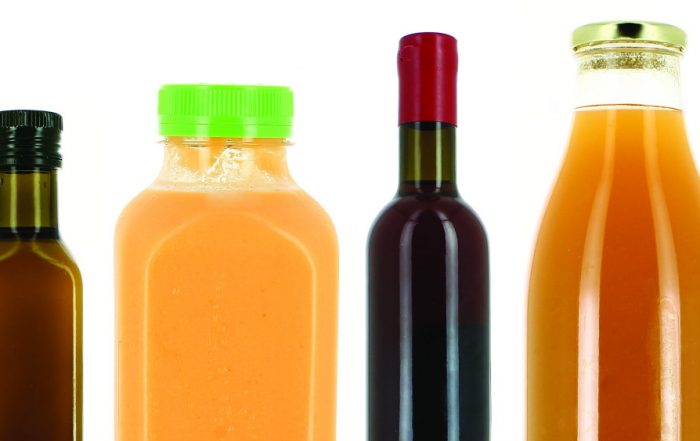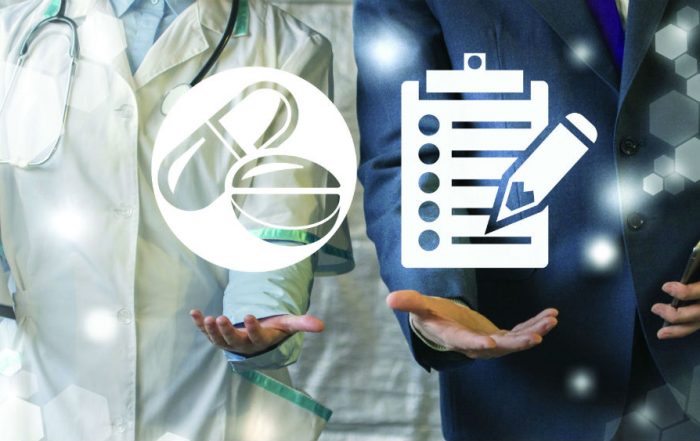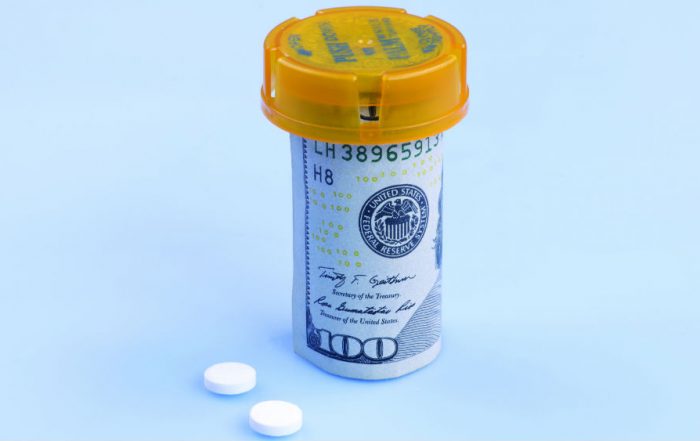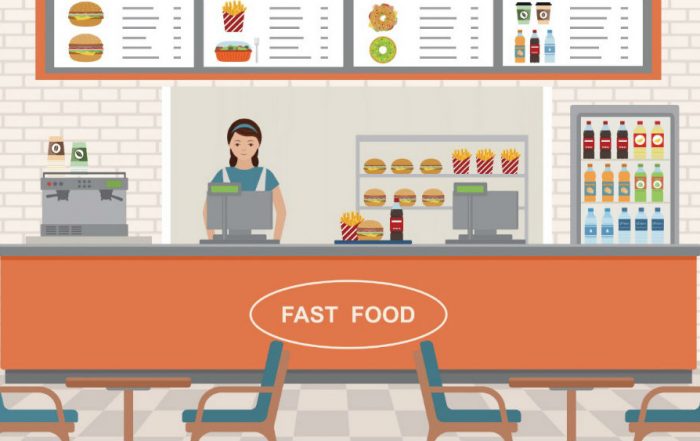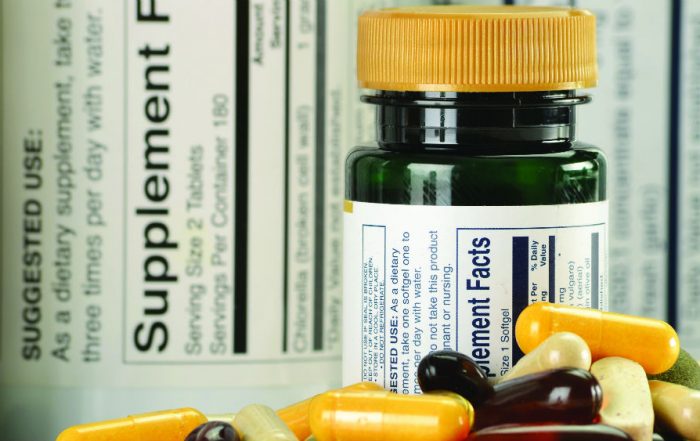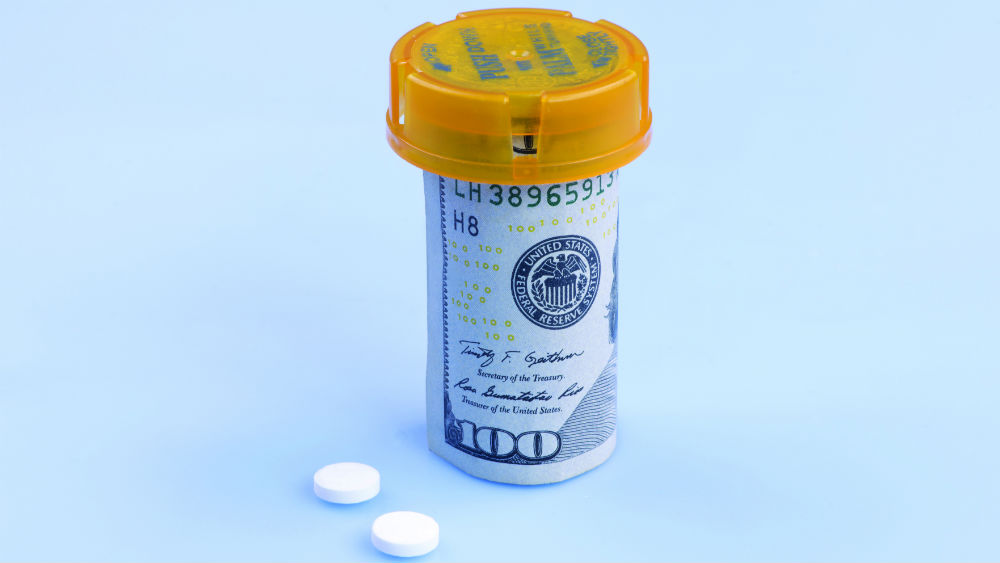
Those Involved in Compound Pharmaceuticals Beware: Law Enforcement Is Focused on You
by Kai Peters
Compound pharmaceuticals occupy a rather special space within the world of pharmaceuticals. Compound pharmaceuticals are unique pharmaceutical products tailored to meet the individual needs of a patient and so are necessary, beneficial, and key components in the treatment of patients. They are widely used, demanded, needed, and subject to reimbursement and yet they sit largely outside of the purview of FDA and the oversight mechanisms that apply to FDA-approved prescription drugs.
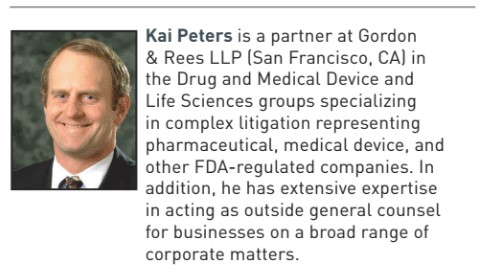 After having focused for years on the pursuit, prosecution, and punishment of illegal kickbacks for FDA-approved pharmaceuticals, law enforcement authorities now are focusing efforts on pursuit of similar healthcare fraud perpetrated by some involved with compound pharmaceuticals. This article provides an overview of compound pharmaceuticals, regulation thereof, and the substantial recent enforcement efforts, including regarding kickbacks.
After having focused for years on the pursuit, prosecution, and punishment of illegal kickbacks for FDA-approved pharmaceuticals, law enforcement authorities now are focusing efforts on pursuit of similar healthcare fraud perpetrated by some involved with compound pharmaceuticals. This article provides an overview of compound pharmaceuticals, regulation thereof, and the substantial recent enforcement efforts, including regarding kickbacks.
Compound Pharmaceuticals
What is Compounding?
Compounding is a practice in which a licensed pharmacist, a licensed physician, or, in the case of an outsourcing facility, a person under the supervision of a licensed pharmacist, combines, mixes, or alters ingredients of a drug to create a pharmaceutical preparation to meet the needs of an individual patient.1 Such drugs are generally referred to as compound pharmaceuticals. Compound pharmaceuticals may be necessary, for example, when a commercially available drug does not meet the needs of a patient, e.g., when a patient cannot tolerate the commercially available drug due to allergy or other reasons, a shortage occurs, or a drug is discontinued. Examples of compound pharmaceuticals include capsules, creams, liquids, and other specially prepared pharmaceuticals.
Of the approximately 56,000 community-based pharmacies in the United States, about 7,500 pharmacies specialize in compounding services. The pharmacists in these pharmacies compound special preparations for patients. Compounding also takes place in hospital pharmacies and at other health care facilities.2 Without question, compounding pharmacies are needed and of great value for healthcare and the market promises to continue to grow with the demand for personalized medicine, the need for pain medications, and the need for compounding pharmacies and the well-trained individuals involved therewith who can create equivalent products in the event of drug shortages.
Compounded drugs are not FDA-approved. The safety or effectiveness of compounded drugs is not verified by FDA through the drug approval process. Compounded drugs also lack an FDA finding of manufacturing quality before such drugs are marketed.3
Regulation of Compounding Pharmacies
General Oversight
In general, State Pharmacy Boards have primary responsibility to oversee compounding pharmacies to ensure that they comply with requirements in accordance with the conditions of Section 503A of the Food Drug & Cosmetic Act (FDCA). Under Section 503A, the requirements of FDA approval do not apply if a drug product is compounded by a licensed pharmacist or physician for an identified individual patient based on the receipt of a valid prescription order or a notation, approved by the prescribing practitioner, on the prescription order that a compounded product is necessary for the identified patient.4 The compounding may also come before the receipt of a valid prescription based on a history of the licensed pharmacist or licensed physician receiving valid prescription orders for the compounding of the drug product.5,6 FDA also has oversight for the integrity and safety of the drug substances used in compounded preparations.7
Outsourcing facilities generally refer to larger pharmacies that distribute high volumes of sterile compounded drugs. Such entities can register as a designated outsourcing facility under Section 503B of the FDCA. Drugs compounded by an outsourcing facility can qualify for exemptions from the FDA approval requirements and the requirement to label products with adequate directions for use, but not from current good manufacturing practice (CGMP) requirements.
Enforcement
Law enforcement authorities have made a concerted effort in recent years to target those involved with compound pharmaceuticals to prosecute healthcare fraud and abuse. Such enforcement authorities include state and federal law enforcement nationwide, including agents from the FBI, the Department of Health and Human Services Office of the Inspector General (HHS-OIG), Drug Enforcement Administration (DEA), Department of Defense Criminal Investigative Service (DCIS) and state Medicaid Fraud Control Units; the U.S. Department of Justice (DOJ); U.S. Attorneys’ Offices nationwide; and Medicare Fraud Strike Force teams from the Criminal Division’s Fraud Section. The breadth of involvement of law enforcement authorities alone signifies the focus on compound pharmaceuticals.
MediCare Fraud Strike Force
One enforcement arm is particularly noteworthy in the prosecution of those involved with healthcare fraud in the realm of compound pharmaceuticals: the MediCare Fraud Strike Force. The Medicare Fraud Strike Force is an interagency task force comprised of OIG and DOJ analysts, investigators, and prosecutors “who target emerging or migrating fraud schemes, including fraud by criminals masquerading as health care providers or suppliers.” Established in March 2007, it is a key component of the Health Care Fraud Prevention and Enforcement Action Team (HEAT), a joint initiative between HHS, OIG, and DOJ.8 Strike Force teams helps in the coordination and collaboration of the OIG, DOJ, Offices of the United States Attorneys, the FBI, local law enforcement, and others.9
Currently, Strike Force teams operate in nine areas: Miami, Florida; Los Angeles, California; Detroit, Michigan; southern Texas; Brooklyn, New York; southern Louisiana; Tampa, Florida; Chicago, Illinois; and Dallas, Texas.10
Enforcement Actions
Pursuit of Compound Pharmaceutical Fraud
It is undeniable that enforcement authorities have placed a particular emphasis on pursuit of healthcare fraud perpetrated by those involved with compound pharmaceuticals. Compound pharmaceuticals may be subject to higher reimbursement under publicly funded healthcare programs and so can present a lucrative opportunity for those involved in healthcare fraud. Considering their wide use, they are just as susceptible to healthcare fraud as FDA-approved drugs. Such fraudulent activities are particularly disturbing as the increased law enforcement focus it attracts interferes with or prevents legitimate patients such as veterans from receiving and legitimate compounders from providing necessary compound pharmaceuticals.
Criminal Prosecutions
On June 22, 2016, then Attorney General Loretta Lynch and HHS Secretary Sylvia Mathews Burwell announced the “unprecedented nationwide sweep led by the Medicare Fraud Strike Force in 36 federal districts, resulting in criminal and civil charges against 301 individuals, including 61 doctors, nurses, other licensed medical professionals, and also health care company owners and others for their alleged participation in health care fraud schemes involving approximately $900 million in false billings.11” Twenty-three state Medicare Fraud Control Units participated in the arrests. The Department of Justice particularly mentioned the Medicare Fraud Strike Force as a key force in the prosecutions.12
A particular focus of the prosecution was fraud involving compounded medications, which DOJ described as an emerging fraud trend.13
For example, cases filed in Southern California alone allege losses of more than $125 million, with the bulk of those losses associated with five cases related to kickback schemes involving compounding pharmacies.14
High-profile cases have continued and promise to continue. For example:
- In August 2016, eight Florida residents were indicted for their alleged participation in a multimillion dollar healthcare fraud scheme involving submission of reimbursement claims for prescription compounded pharmaceuticals to Medicare and others. The reimbursement claims were allegedly generated as a result of illegal kickbacks and bribes and resulted in $157 million in fraudulent insurance claims.15
- In October 2016, ten additional defendants in Texas were charged for their alleged roles in a kickback operation involving compounded pain and scar creams and the payment of kickbacks to beneficiaries, prescribing physicians, and marketers by owners of compounding pharmacies.16
- In March 2017, a federal grand jury in Texas indicted eight persons in an alleged $158 million healthcare fraud scheme involving the payment of kickbacks for prescription of compound medications used to treat scars, wounds, and pain.17
- In July 2017, in the current largest ever national health care fraud enforcement action by the Medicare Fraud Strike Force, DOJ again emphasized that it was targeting schemes involving medically unnecessary prescription compounded medications and cited one Louisiana case that involved a pharmacist who was charged with submitting and causing the submission of $192 million in false and fraudulent claims to health care benefit programs for medically unnecessary compounded medications often induced by illegal kickback payments.18
Kickbacks
A pattern of violations of the Anti-Kickback Statute (AKS) is apparent in these prosecutions.19 With respect to compound pharmaceuticals, in many cases, physicians and other co-conspirators were allegedly paid cash kickbacks in return for prescribing compound pharmaceuticals for patients. For example, compounding pharmacies supplied custom compound pharmaceuticals such as compound creams to patients. The specialty pharmaceutical products prepared in dosages unique from FDA-approved pharmaceuticals garnered higher cash reimbursements under publicly funded health care programs such as Medicare. In kickback marketer schemes, compounding pharmacies were provided with large numbers of prescriptions (sometimes pre-prepared by the compounding pharmacies and provided to physicians to facilitate the scheme), generally for pain medications, that received huge reimbursements, often more than $15,000 for each prescription. According to one complaint, prescriptions for compound pharmaceuticals had been specially formulated to achieve the highest possible reimbursement rates rather than the greatest medical efficacy. Doctors wrote prescriptions and then received kickbacks from marketers or “telemedicine” websites that had little or no contact with patients. Often the so-called patients did not want the prescriptions, had never met the prescribing physicians, or did not know why they were receiving the medications. In many cases, the beneficiary information was being used without the knowledge of the “patients” until the prescriptions showed up at their homes. In short, physicians prescribed the compound pharmaceuticals for patients, claims were submitted to publicly funded programs, and claims were paid. Compounding pharmacies then paid the physicians and others involved in the chain kickbacks for prescribing the higher reimbursed drugs.20
The AKS is a federal law that bars the knowing and willful payment of “remuneration” or exchange of anything of value to induce or reward the generation of business involving any item or service payable by the Federal healthcare programs (e.g., compound pharmaceuticals for Medicare or Medicaid patients).21 Remuneration includes anything of value and can take many forms. Cash is the most readily ascertainable but it can also include meals, gifts, vacations, and excessive consultant fee payments. The statute covers those who pay kickbacks, those who make the offer of payment, and those who receive kickbacks.22
Criminal penalties and administrative sanctions for violating the AKS are significant. Conviction for a single violation under the AKS may result in a fine of up to $25,000 and imprisonment for up to five years. 23 In addition, conviction results in mandatory exclusion from participation in federal healthcare programs.24 The government may also assess civil money penalties, which could result in treble damages plus $50,000 for each violation of the AKS.25 Individuals who violate the AKS may face exclusion from federal and state health care programs at the discretion of the HHS Secretary as a civil penalty.26
The pursuit of compounding pharmacies is not limited to violations of the AKS. For example, violation of the False Claims Act (FCA) is also pertinent here. Penalties under the criminal FCA (18 U.S.C. § 287) can include imprisonment and criminal fines for submission of false claims. And there is potential civil liability as well.27 Generally speaking, the FCA renders persons or entities who make false claims to the government liable for damages up to three times the amount of the erroneous or improper payment plus mandatory penalties for each false claim submitted.28
Where such a false claim for payment has been made, the federal government may bring a civil action to enforce the FCA. Fines can be substantial as each instance of an item billed to a federal program counts as a claim. Specifically, 31 U.S.C. § 3729(a) states that persons or entities are liable under the FCA where they “knowingly present [], or cause[] to be presented, a false or fraudulent claim for payment or approval.” Violations in the form of claims resulting from a kickback under the AKS can create liability under the FCA in addition to the AKS. Other counts include counts for criminal conspiracy, money laundering, wire and mail fraud, and identity theft to name a few.
For the many participants in the compound pharmaceutical world, there are some helpful practices that can be followed to continue their clean practices. For example:
- Physicians who prescribe compound pharmaceuticals should detail the necessity of the unique pharmaceutical product for the particular patient.
- Those who sell compound pharmaceuticals should employ strong training regimens for marketers directly employed by them as to what constitutes kickbacks and to avoid them.
- For marketers not directly employed by sellers, those who sell compound pharmaceuticals can take special care in their written agreements with marketers, including appropriate representations and warranties.
- For independent marketers, be well informed of the broad definition of kickbacks in order to avoid them.
Conclusion
Law enforcement has been focused on attacking healthcare fraud related to compound pharmaceuticals and promises to continue to do so. Kickbacks, reimbursement schemes, and related illegal activities have been a focus of recent prosecutions. Government authorities will continue to investigate and pursue those involved with such healthcare fraud nationwide. Those involved in the industry would be well advised to learn and follow best practices to protect themselves and preserve their clean practices.
- https://www.fda.gov/drugs/guidancecomplianceregulatoryinformation/pharmacycompounding/ucm339764.htm.
- American Pharmacists Association (http://www.pharmacist.com/frequently-asked-questions-about-pharmaceutical-compounding).
- U.S. Food & Drug Administration: “Compounding and the FDA: Questions and Answers” (https://www.fda.gov/drugs/guidancecomplianceregulatoryinformation/pharmacycompounding/ucm339764.htm)
- Section 503A(a) (21 U.S.C. 353a(a)) (“Section 503A).
- Section 503A(a)(2).
- The Drug Enforcement Administration (DEA) also oversees any controlled substances used in compound pharmaceuticals.
- Section 503A(c)(2).
- U.S. Department of Justice, February 26, 2016 Release (https://www.justice.gov/opa/pr/fact-sheet-health-care-fraud-and-abuse-control-program-protects-conusmers-and-taxpayers).
- Office of Inspector General: Medicare Fraud Strike Force (https://oig.hhs.gov/fraud/strike-force/).
- Id.
- U.S. Department of Justice, June 22, 2016 Release (https://www.justice.gov/opa/pr/national-health-care-fraud-takedown-results-charges-against-301-individuals-approximately-900).
- The breadth of jurisdictions involved in the take-down show law enforcement’s seriousness in pursuing healthcare fraud. The Strike Force locations included the Southern District of Florida, Southern District of Texas, Northern District of Texas, Central District of California, Eastern District of Michigan, Middle District of Florida, Northern District of Illinois, Eastern District of New York, and Eastern District of Louisiana. Individual U.S. Attorney’s Offices and/or respective Medicaid Fraud Control Units were also involved in investigations and cases brought in the states of Alabama, Alaska, California, Connecticut, Georgia, District of Columbia, Florida, Indiana, Iowa, Kansas, Kentucky, Louisiana, Maine, Michigan, Minnesota, Missouri, New Hampshire, New Mexico, New York, North Carolina, Ohio, Oklahoma, Oregon, Pennsylvania, Rhode Island, South Dakota, Tennessee, Texas, Vermont, West Virginia, and the District of Puerto Rico. U.S. Department of Justice, June 22, 2016 Release (https://www.justice.gov/opa/pr/national-health-care-fraud-takedown-results-charges-against-301-individuals-approximately-900).
- Id.
- California Department of Insurance, June 22, 2016 Release (https://www.insurance.ca.gov/0400-news/0100-press-releases/2016/22-Defendants-Named-in-Health-Care-Fraud.cfm).
- U.S. Department of Justice, August 9, 2016 Release (https://www.justice.gov/opa/pr/eight-individuals-charged-multimillion-dollar-compounding-pharmacy-fraud-scheme).
- U.S. Attorney’s Office, Northern District of Texas, October 14, 2016 Release (https://www.justice.gov/usao-ndtx/pr/ten-additional-defendants-charged-100-million-tricare-fraud-scheme).
- U.S. Attorney’s Office, Northern District of Texas, March 24, 2016 Release (https://www.justice.gov/usao-ndtx/pr/federal-grand-jury-indicts-eight-individuals-charged-158-million-health-care-fraud).
- U.S. Department of Justice, July 13, 2017 Release (https://www.justice.gov/opa/pr/national-health-care-fraud-takedown-results-charges-against-over-412-individuals-responsible).
- More than 60 of the defendants arrested are charged with fraud related to the Medicare prescription drug benefit program known as Part D, which is the fastest-growing component of the Medicare program overall. California Department of Insurance, June 22, 2016 Release (https://www.justice.gov/opa/pr/national-health-care-fraud-takedown-results-charges-against-301-individuals-approximately-900).
- California Department of Insurance, June 22, 2016 Release (https://www.insurance.ca.gov/0400-news/0100-press-releases/2016/22-Defendants-Named-in-Health-Care-Fraud.cfm).
- See 42 U.S.C. § 1320a-7b(b).
- See id.
- See id.
- See 42 U.S.C § 1320a-7.
- See 42 U.S.C § 1320a-7a(a) and (a)(7).
- See 42 U.S.C. § 1320a-7a(a).
- See 31 U.S.C. § 3729-3733.
- Id.
Update Magazine
November/December 2017

